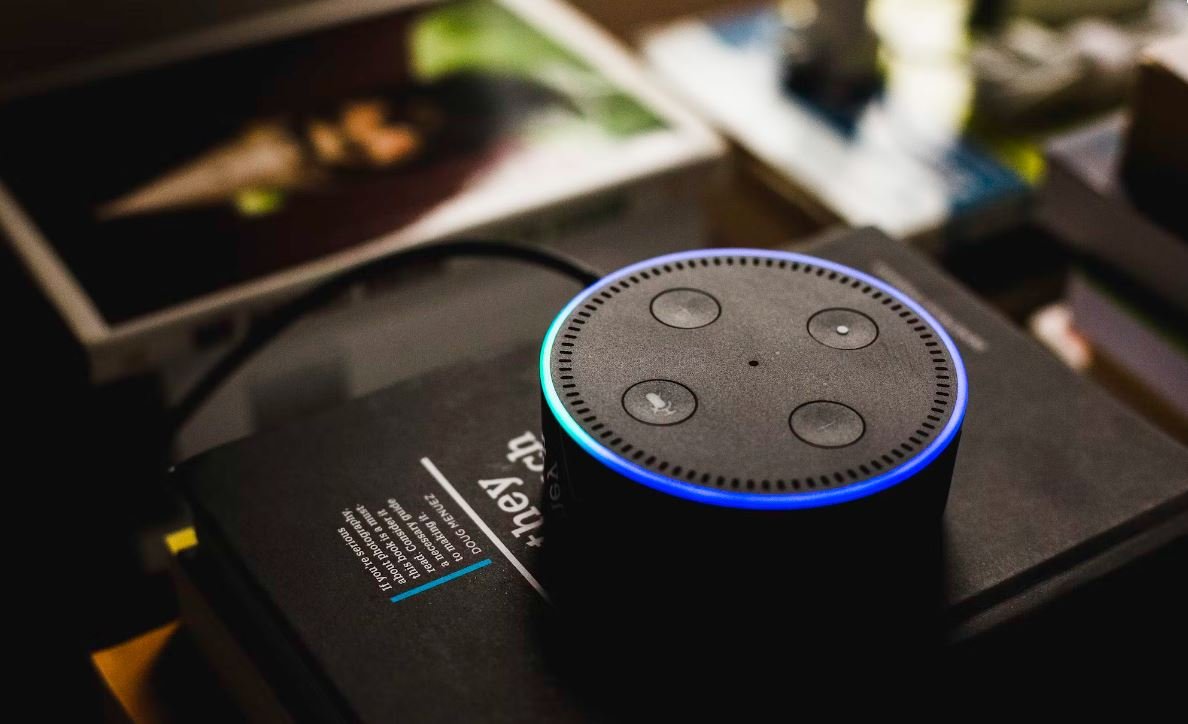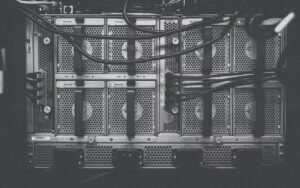AI Making Things
Artificial Intelligence (AI) is no longer just a concept of the future; it is rapidly becoming an integral part of our daily lives. From smart virtual assistants to autonomous vehicles, AI is revolutionizing various sectors and industries. In this article, we will explore how AI is making things smarter, more efficient, and ultimately enhancing our experiences.
Key Takeaways:
- AI is transforming multiple sectors, including healthcare, manufacturing, and transportation.
- Machine learning algorithms enable AI systems to learn and improve on their own.
- AI can enhance decision-making processes, leading to more accurate and efficient results.
- Concerns about AI ethics and job displacement are important considerations for the integration of AI.
**AI-powered systems utilize machine learning algorithms to analyze vast amounts of data, enabling them to make accurate predictions and recommendations**. For instance, in the healthcare sector, AI can analyze medical records and identify patterns that may not be perceivable by human doctors. This can lead to better diagnoses and treatment plans for patients. Furthermore, AI is being used to develop personalized medicine, where treatments are customized based on an individual’s genetic makeup, significantly improving patient outcomes.
*”Imagine a world where doctors have access to the collective knowledge of millions of medical cases and research papers at their fingertips”*.
In manufacturing, AI-driven automation is streamlining production processes and improving efficiency. Robots equipped with AI can undertake complex tasks with precision and accuracy, reducing errors and increasing productivity. Additionally, predictive maintenance using AI algorithms can determine when machinery is likely to break down, enabling proactive repair and minimizing downtime.
The Impact of AI in Healthcare, Manufacturing, and Transportation
**AI is playing a significant role in revolutionizing healthcare.** It is not only assisting in diagnosing diseases but also accelerating drug discovery and development. Machine learning algorithms can analyze vast amounts of genomic data to identify potential drug targets, thereby speeding up the traditionally lengthy drug development process. AI-powered robotic surgical systems are also increasingly being used in operating theaters, enabling surgeons to perform complex procedures with precision and minimal invasiveness.
| Industry | Key AI Applications |
|---|---|
| Healthcare | Medical diagnosis, drug discovery, personalized medicine |
| Manufacturing | Robotic automation, predictive maintenance |
| Transportation | Autonomous vehicles, traffic optimization |
**In the transportation sector, AI is transforming the way we commute**. Autonomous vehicles powered by AI technologies are becoming increasingly prevalent, promising safer and more efficient transportation. These vehicles use AI algorithms to interpret and respond to traffic situations, significantly reducing the risk of accidents. Additionally, AI-based traffic optimization systems can analyze real-time data to reroute vehicles and reduce congestion, ultimately saving time and fuel.
Challenges and Considerations
Despite the numerous benefits AI brings, there are also important considerations and challenges surrounding its integration into various sectors. **Ethical considerations are paramount**, as AI-powered systems must be designed and implemented with privacy, fairness, and transparency in mind. Bias in AI algorithms can reinforce existing inequalities and discrimination, highlighting the importance of diverse and inclusive development teams.
| AI Application | Concerns |
|---|---|
| AI in Healthcare | Privacy, security, bias in data and diagnosis |
| AI in Manufacturing | Job displacement, re-skilling/education of the workforce |
| AI in Transportation | Liability and safety concerns in autonomous vehicles |
Job displacement is another concern associated with the integration of AI in the workforce. While AI systems can automate mundane and repetitive tasks, they also have the potential to replace certain job roles. This calls for organizations and governments to proactively plan for transitioning and re-skilling affected workers, ensuring that they can thrive in an AI-driven economy.
**In conclusion, AI is revolutionizing multiple sectors, making processes more efficient and driving innovation**. The transformative power of AI lies in its ability to analyze vast amounts of data, learn from it, and adapt to changing circumstances. By harnessing the potential of AI while addressing ethical concerns and preparing for the future, we can fully embrace the benefits this technology brings to society.

Common Misconceptions
Misconception 1: AI is capable of human-like intelligence
Many people believe that AI possesses the same level of intelligence as humans, when in reality, AI systems are designed to perform specific tasks with predefined algorithms. They lack general intelligence and cannot think or reason like humans.
- AI is limited to the domain it is programmed for
- AI cannot understand context and emotions like humans do
- AI lacks consciousness and self-awareness
Misconception 2: AI will replace human jobs entirely
There is a fear that AI will render many jobs obsolete, leading to mass unemployment. While AI automation may streamline certain tasks, it also creates new job opportunities and requires human oversight and creativity in various fields.
- AI will augment human work, not replace it entirely
- Jobs that require emotional intelligence and complex decision-making are less likely to be automated
- New roles will emerge to support and develop AI systems
Misconception 3: AI is infallible and error-free
Another common misconception is that AI systems are always accurate and free from errors. However, AI algorithms are only as good as the data they are trained on, and they can produce biased or flawed outcomes if trained on biased data.
- AI can reinforce existing biases if not carefully trained and tested
- AI systems can make mistakes and misinterpret data
- Human intervention is crucial to analyze and correct erroneous AI outputs
Misconception 4: AI is only for big corporations or tech companies
Many people wrongly assume that AI is exclusive to large corporations or only used by technology companies. In reality, AI technologies are becoming more accessible and are being adopted by various sectors, including healthcare, finance, agriculture, and education.
- AI tools and applications are available for businesses of all sizes
- AI can benefit industries beyond the tech sector
- Startups and entrepreneurs can leverage AI to innovate and compete
Misconception 5: AI will take over the world and become a threat to humanity
Some individuals harbor fears that AI will become uncontrollable and pose a significant threat to humanity, as depicted in science fiction movies. However, the development of responsible AI ethics and regulations ensures the responsible deployment and use of AI technologies.
- AI development involves ethical considerations to prevent malicious use
- AI systems are created and controlled by humans
- Humans have the responsibility to regulate and govern AI technologies

Advantages of AI in Healthcare
Artificial Intelligence (AI) is revolutionizing the healthcare industry, enabling faster and more accurate diagnoses, personalized treatment plans, and improved patient outcomes. The following table highlights some of the key advantages AI brings to the healthcare sector:
| Advantage | Description |
|---|---|
| Enhanced Diagnostics | AI algorithms can analyze medical imaging scans, such as X-rays and MRIs, with higher accuracy than human doctors, aiding in early detection and diagnosis of diseases. |
| Drug Discovery | AI can accelerate the process of discovering new drugs by analyzing vast volumes of data, identifying potential target molecules, and predicting their effectiveness. |
| Precision Medicine | By considering an individual’s genetic and lifestyle factors, AI can assist in tailoring treatment plans that are optimized for each patient’s unique needs. |
| Remote Patient Monitoring | AI-powered wearable devices can continuously monitor vital signs and alert healthcare providers to potential health issues, improving early intervention and reducing hospital readmissions. |
| Efficient Administrative Tasks | AI chatbots and virtual assistants can automate scheduling appointments, managing medical records, and processing insurance claims, reducing administrative burden. |
The Impact of AI in Manufacturing
AI is reshaping the manufacturing industry, driving increased efficiency, productivity, and overall operational improvements. The table below presents some key factors demonstrating the impact of AI in manufacturing:
| Factor | Effect |
|---|---|
| Quality Control | AI can perform real-time analysis on production lines to detect defects or anomalies, minimizing errors and ensuring higher product quality. |
| Optimized Supply Chain | Using predictive analytics, AI can forecast demand, optimize inventory levels, and manage logistics, reducing costs and optimizing delivery times. |
| Safety Enhancements | AI-enabled robots can perform dangerous tasks that pose risks to human workers, enhancing workplace safety and reducing accidents. |
| Increased Productivity | AI-powered robotics and automation systems can handle repetitive tasks with higher speed and precision, enhancing production rates and overall efficiency. |
| Resource Optimization | AI algorithms can analyze data from sensors and machines to optimize energy consumption, reducing waste and lowering environmental impact. |
Benefits of AI in Education
The integration of AI in education holds great potential to enhance learning experiences, personalize instruction, and provide valuable insights for educators. The following table highlights some of the benefits of AI in the education sector:
| Benefit | Description |
|---|---|
| Adaptive Learning | AI-powered educational platforms can adapt to individual students’ needs, pacing their learning journey and providing personalized feedback. |
| Virtual Assistants | AI chatbots or virtual assistants can provide instant support to students by answering questions, solving problems, and providing additional resources. |
| Automated Grading | AI algorithms can expedite the grading process for assignments and exams, providing prompt feedback and saving educator’s time. |
| Educational Content Creation | AI can generate educational content, such as quizzes and interactive lessons, tailored to a student’s learning style, enhancing engagement and comprehension. |
| Early Intervention | By analyzing student performance data, AI can identify early signs of learning difficulties or delays, enabling timely interventions and support. |
AI in Smart Transportation
With the implementation of AI, transportation systems are becoming smarter, safer, and more efficient. The table below showcases some of the advancements that AI brings to smart transportation:
| Advancement | Description |
|---|---|
| Autonomous Vehicles | AI-enabled self-driving cars can navigate roads, interpret traffic signs, and react to real-time situations, promising safer and more efficient transportation. |
| Traffic Management | AI algorithms can optimize traffic signal timings, reroute vehicles based on congestion, and predict traffic patterns, reducing congestion and minimizing travel times. |
| Smart Infrastructure | AI systems can monitor the condition of roads, bridges, and tunnels in real-time, detecting maintenance needs and preventing infrastructure failures. |
| Ride-Sharing Optimization | AI can analyze large-scale transportation data and user preferences to optimize ride-sharing systems, reducing empty trips and lowering emissions. |
| Enhanced Passenger Experience | AI-powered sensors and feedback mechanisms can analyze passenger emotions and behavior, tailoring services and improving overall satisfaction. |
The Role of AI in E-commerce
AI is reshaping the e-commerce landscape, enabling personalized experiences, improving customer service, and streamlining business operations. The following table highlights key aspects of AI in e-commerce:
| Aspect | Impact |
|---|---|
| Recommendation Systems | AI algorithms can analyze user behavior, preferences, and purchase history to suggest personalized product recommendations, increasing sales and customer satisfaction. |
| Chatbots and Virtual Assistants | AI-powered chatbots can provide 24/7 customer support, answer queries, assist in product selection, and process orders, enhancing customer experience and reducing response times. |
| Fraud Detection | AI can analyze large-scale transaction data and identify patterns indicative of fraudulent activities, minimizing financial losses and enhancing security. |
| Inventory Management | AI algorithms can predict demand patterns, track inventory levels, and automate restocking, ensuring optimal inventory management and reducing stockouts. |
| Visual Search | AI-powered visual search technology can analyze images and find similar products, allowing users to search for items by uploading pictures, facilitating product discovery. |
AI in Financial Services
AI is transforming the financial services industry, ranging from fraud detection and risk assessment to personalized financial advice. The following table presents some key applications of AI in finance:
| Application | Description |
|---|---|
| Fraud Prevention | AI algorithms can analyze large volumes of financial data, flagging suspicious transactions and patterns that indicate potential fraud, minimizing losses. |
| Customer Service | AI chatbots can assist customers with basic inquiries, facilitate transactions, and provide personalized financial advice, enhancing customer experience and reducing costs. |
| Algorithmic Trading | AI-powered trading systems can analyze market conditions, news, and historical data to make autonomous trading decisions, improving efficiency and profitability. |
| Credit Scoring | AI models can assess creditworthiness by analyzing various factors, enabling quicker and more accurate credit decisions, especially for individuals without a traditional credit history. |
| Risk Assessment | AI algorithms can evaluate risks associated with loans, investments, and insurance policies, informing decision-making and optimizing risk management strategies. |
AI and Cybersecurity
As cyber threats continue to evolve, AI is playing an increasingly crucial role in safeguarding digital assets and combating malicious activities. The table below highlights key aspects of AI in cybersecurity:
| Aspect | Impact |
|---|---|
| Threat Detection | AI-powered systems can analyze network traffic, user behavior, and real-time threat intelligence to detect and respond to cybersecurity threats with increased speed and accuracy. |
| Anomaly Detection | AI algorithms can identify unusual patterns or behaviors that deviate from the norm, enabling early detection of potential security breaches or unauthorized access attempts. |
| Automated Response | AI-enabled security systems can autonomously respond to cyber threats, isolating affected systems, blocking suspicious traffic, and initiating proactive defense measures. |
| User Authentication | AI technologies, such as facial recognition and biometric authentication, can enhance user verification processes, making them more secure and convenient. |
| Behavioral Analysis | AI models can analyze user behavior patterns to detect and prevent insider threats, identifying abnormal activities or data exfiltration attempts. |
The Ethical Implications of AI
While AI brings numerous benefits, there are ethical considerations that need to be addressed. The table below presents some key ethical implications associated with AI:
| Implication | Description |
|---|---|
| Data Privacy | AI relies on vast amounts of personal data, raising concerns about how data is collected, stored, and protected to ensure privacy and prevent misuse. |
| Job Displacement | The widespread adoption of AI may lead to job losses or changes in the job market, requiring measures to retrain and reskill individuals affected by automation. |
| Bias and Fairness | AI systems can inadvertently perpetuate biases present in the training data, leading to discriminatory outcomes and reinforcing existing social inequalities. |
| Security Risks | AI systems may be vulnerable to attacks or exploits, necessitating robust cybersecurity measures to safeguard critical infrastructure and prevent malicious use. |
| Accountability and Transparency | AI decision-making processes can be complex and opaque, requiring mechanisms to ensure accountability, explainability, and transparency in AI-driven decision systems. |
Conclusion
The advent of AI has profoundly impacted various industries, from healthcare and manufacturing to education, transportation, e-commerce, finance, and cybersecurity. It has revolutionized diagnostics, production processes, personalized learning, transportation systems, customer experiences, financial services, and cybersecurity defenses. Despite the numerous advantages AI offers, ethical implications concerning privacy, job displacement, unbiased decision-making, security risks, and accountability must be vigilantly addressed. As AI continues to advance, organizations and policymakers must work collaboratively to ensure responsible and beneficial implementation of this transformative technology.
Frequently Asked Questions
How does artificial intelligence (AI) make things work?
AI utilizes advanced algorithms and machine learning techniques to process massive amounts of data with the goal of mimicking human intelligence. It utilizes neural networks and deep learning algorithms to analyze patterns, make decisions, and perform predictive tasks.
What are some key applications of AI in various industries?
AI finds applications in industries such as healthcare, finance, transportation, manufacturing, and entertainment. It can be used for medical diagnosis, fraud detection, autonomous vehicles, quality control, and recommendation systems.
What are the different types of AI?
There are three types of AI: narrow or weak AI, which is designed for specific tasks; general or strong AI, which exhibits human-like intelligence across various domains; and superintelligent AI, which surpasses human intelligence and capabilities.
How can AI impact the job market?
While AI can automate certain manual and repetitive tasks, it also brings new job opportunities in fields like data science, AI development, and AI ethics. It is expected to transform industries, leading to job redefinition rather than mass unemployment.
What is the role of data in AI?
Data is crucial for training AI models and improving their performance. Large datasets enable AI algorithms to recognize patterns and make accurate predictions. High-quality, diverse, and labeled data is essential for effective AI implementation.
What are the ethical considerations associated with AI?
AI raises ethical concerns such as privacy, bias, transparency, and accountability. Understanding and mitigating these issues is crucial to ensure that AI technology is used responsibly and its potential negative impacts are minimized.
Is AI capable of replacing human intelligence?
While AI can outperform humans in specific tasks, it is unlikely to completely replicate human intelligence. Human cognition and adaptability encompass a wide range of complex capabilities that are challenging to replicate in machines.
Are there any risks associated with AI technology?
AI presents potential risks such as unintended consequences, job displacement, biased decision-making, and security vulnerabilities. Ensuring robust governance, responsible development, and continuous monitoring can help mitigate these risks.
How can businesses implement AI effectively?
Businesses can implement AI effectively by identifying areas for improvement, defining clear goals, procuring suitable AI technologies, ensuring data readiness, providing necessary training, and monitoring AI systems to ensure optimal performance.
What is the future of AI?
The future of AI holds immense potential. Advancements in AI technology are expected to drive innovations across industries, enable personalized experiences, enhance decision-making, and contribute to solving complex global challenges.




